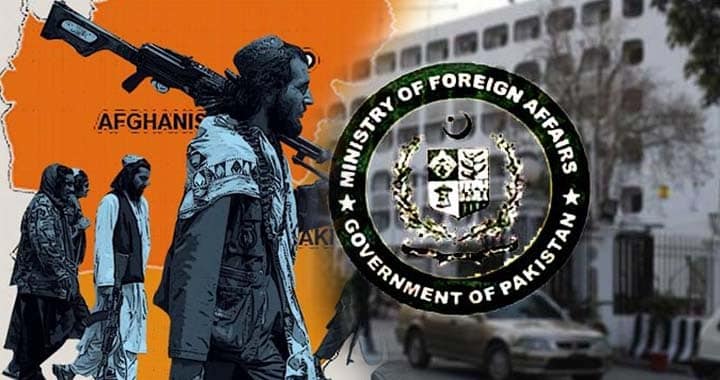In a fresh reiteration of its long-standing concerns, Pakistan has once again called on the Afghan interim government to take decisive and verifiable action against the Tehreek-e-Taliban Pakistan (TTP) and other proscribed terrorist groups operating from Afghan soil.
Addressing the weekly press briefing on Friday, Foreign Office Spokesperson emphasized that cross-border terrorism remains a pressing national security concern, and is regularly raised with Afghan authorities through both bilateral and multilateral forums.
“Pakistan respects Afghanistan’s sovereignty,” she said, “but Afghan territory must not be used to launch attacks against Pakistan.”
Pakistan’s demands have been consistent and clear: the Taliban regime must either neutralise TTP militants, hand them over to Pakistan, or at the very least, relocate them away from the border regions to prevent cross-border infiltration. However, Islamabad’s patience is wearing thin as it faces mounting evidence that the Afghan Taliban are not only failing to act, but are in fact shielding and facilitating TTP operatives.
Taliban’s Growing Complicity
According to credible security sources, there is a rising number of Afghan nationals being killed on Pakistani soil during anti-terror operations, many found fighting alongside TTP terrorists against Pakistani security forces. These disturbing developments suggest more than passive inaction; they point to active support, or at the very least tactical tolerance, by the Afghan Taliban for terrorist activity against Pakistan.
Despite repeated engagements, the Afghan interim government has not taken meaningful steps to disrupt the operational sanctuaries of banned groups, particularly in eastern Afghanistan, near the Pakistan border. This, Pakistan warns, is not only a bilateral concern but a threat to regional peace and stability.
Condemnation of Israeli Aggression
Separately, the spokesperson condemned the recent Israeli attack on the Gaza-bound Freedom Flotilla, calling it a blatant violation of international law. She confirmed the release of former Senator Mushtaq Ahmed, who had been briefly detained by Israeli forces during the mission.
Pakistan also acknowledged the roles of Qatar, Egypt, and Saudi Arabia in mediating ceasefire talks and striving for peace in Gaza.
Diplomatic Outreach and Economic Engagement
Deputy Prime Minister and Foreign Minister Ishaq Dar held telephone conversations with his Iranian and Saudi counterparts to discuss bilateral ties and the Gaza conflict. Additionally, Prince Mansour bin Nasser Al Saud, Chairman of the Saudi-Pakistan Joint Business Council, arrived in Islamabad with a high-level delegation. The visit focuses on strengthening economic cooperation and exploring investment opportunities in Pakistan’s key sectors, including infrastructure and energy.
Moscow Format: Regional Pressure Builds
Pakistan’s message also echoed in the recent Moscow Format talks held in Kazan, Russia. Along with China, Iran, Russia, and Central Asian states, Pakistan reiterated that the Taliban must break all ties with terrorist organisations, uphold their international commitments, and ensure Afghan territory is not used to destabilise neighboring countries.
The regional consensus is growing: Afghanistan’s internal security choices now directly affect the security of the entire region, and the burden of responsibility lies squarely with the Taliban regime.





